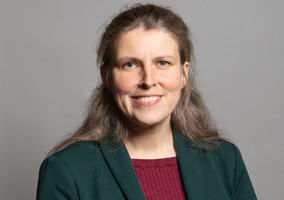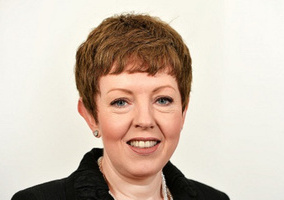Yesterday the government, finally, named Martin Thomas the preferred candidate to become the next chair of the Charity Commission.
Well over a year ago, Baroness Stowell announced that she would leave in early 2021, after serving just one term.
The competition to replace her was launched in March, but final interviews did not take place until September.
During this period, Ian Karet, a legal board member at the Commission, has been the interim chair.
This autumn Oliver Dowden, then culture secretary overseeing the process, sparked concern about the political interference in the process with an opinion article calling for the sector to be rebalanced.
The Good Law Project has begun legal action against the Department for Digital, Culture, Media and Sport. And the Labour Party called for the whole process to be re-run.
Who is Martin Thomas?
Thomas already chairs another public body, NHS Resolution, which is an arm’s-length body of the Department of Health and Social Care.
He began this role in January and the organisation’s purpose is to support the NHS to resolve disputes fairly, learn from mistakes and improve patient care.
His background is in insurance and financial services sectors including roles at the Bank of England, the European Commission and the European Central Bank. He was also a member of the 30% Club dedicated to getting women onto boards.
He declared no political interests.
Thomas also has extensive involvement with charities. He is currently on the board of three charities, although he will stand down from these roles to take up the position of chair of the Commission.
Forward Arts Foundation, where he has been chair since 2013, has an income of nearly £300,000, runs poetry programmes with support from the BBC.
Thomas also chairs Gwithian Chapel, a listed building which holds a handful of religious services a year. This charity is too small to be required to file full accounts, with an income of just £3,000.
However, it was three days late filing its annual return with the regulator, and did so on 3 November – after interviews for the job of chair had been held, although the documents would not have been overdue at the time interviews were held. Gwithian Chapel was also a month late filing its annual return in 2019.
Downside Up, where he is a trustee, provides support to families raising children with Down Syndrome in Russia. The charity had an annual income of £2m for the year ending June 2020.
Thomas has previously been involved with several other charities. In 2017, while chair of Women for Women International, he wrote an article for Civil Society Media’s Governance & Leadership magazine.
He said: “For any charity, the board has a crucial role and duty to fulfil – encompassing strategy, oversight, and accountability.
“Above all, it is our responsibility to ensure that all decisions are taken with the charity’s interests as paramount. We are bound to act collectively to ensure proper management and administration of the charity, to best advance our vision and mission.”
He also wrote that he believes it is “important to run any charitable organisation with the same level of commitment and ambition as you would a business”.
What will he do?
The role is part-time, two and half days a week, and carries an annual salary of £62,500.
Day-to-day and operational management at the Charity Commission is delegated to the chief executive, but the board is ultimately responsible for everything the regulator does to fulfil its statutory obligations.
The chair is responsible for setting strategic priorities, regulating independently and proportionately, developing relationships with other bodies, and managing the chief executive.
As chair he will also be involved in recruiting future board members and carry out a lot of the Commission’s public facing work.
What do charities think?
Charities have been arguing for years that the chair of the regulator needs to be politically neutral and have a greater understanding of the sector. The sector appears to have got what it has been calling for, so in general sector leaders are optimistic about this appointment.
Sarah Vibert, interim CEO at NCVO, said she expects him to “bring a breadth of experience” and highlighted the range of charities he had been involved with.
“The Charity Commission needs strong, independent leadership and we hope this reflects a recognition from the government that political appointments to this role have caused concern,” she added.
“We look forward to seeing more about how he intends to approach the role at next week’s pre-appointment hearing. We have long argued the importance of respecting the process, and with ACEVO have set out the qualities we think the new chair needs to demonstrate.”
Ros Oakley, chief executive of Association of Chairs, said: “We are pleased to see the government has selected a preferred candidate who has knowledge of the charity sector, experience of the chairing role and no apparent political affiliation.
“Martin Thomas has chaired at least three charities, which will give him insight into the importance of governance and the key contribution that chairs make.
“We look forward to finding out more about him and the approach he intends to take if appointed to this key role.”
Dan Corry, chief executive of NPC, said: “It looks like we now have a candidate with good experience of the sector and whose career suggests will have some understanding of regulation, two points we urged to be taken into account.”
He added: “Assuming all goes ahead, we look forward to working with Martin to explore how the Commission can drive impact in the sector. There’s lots of scope for change such as requiring trustees to report on mission and impact, promoting transparency among grantmakers, and enabling better use of Charity Commission data.”
What happens next?
First, Thomas will face the Digital, Culture, Media and Sport Committee next week for a pre-appointment hearing.
This is a mere formality. Last time the committee rejected Stowell’s appointment, but the culture minister, then Matt Hancock, pressed ahead.
However, that hearing can set the tone for the next three years. And arguably, Stowell never recovered from the criticism that she did not understand the sector she was planning to regulate. Her tenure as chair was marred by frequent clashes with charities over tone and language.
Thomas may has already received a warmer welcome from charities than his predecessors, but it is not all plain sailing. The Good Law Project has begun legal action to force DCMS to re-run the whole process.
Jo Maugham, director of the Good Law Project, said: “Our judicial review concerns an unlawful ministerial instruction to make a political appointee to an important regulator. We will write to ask government for more details of the process by which Mr Thomas was appointed and then decide on next steps.”
Related articles












